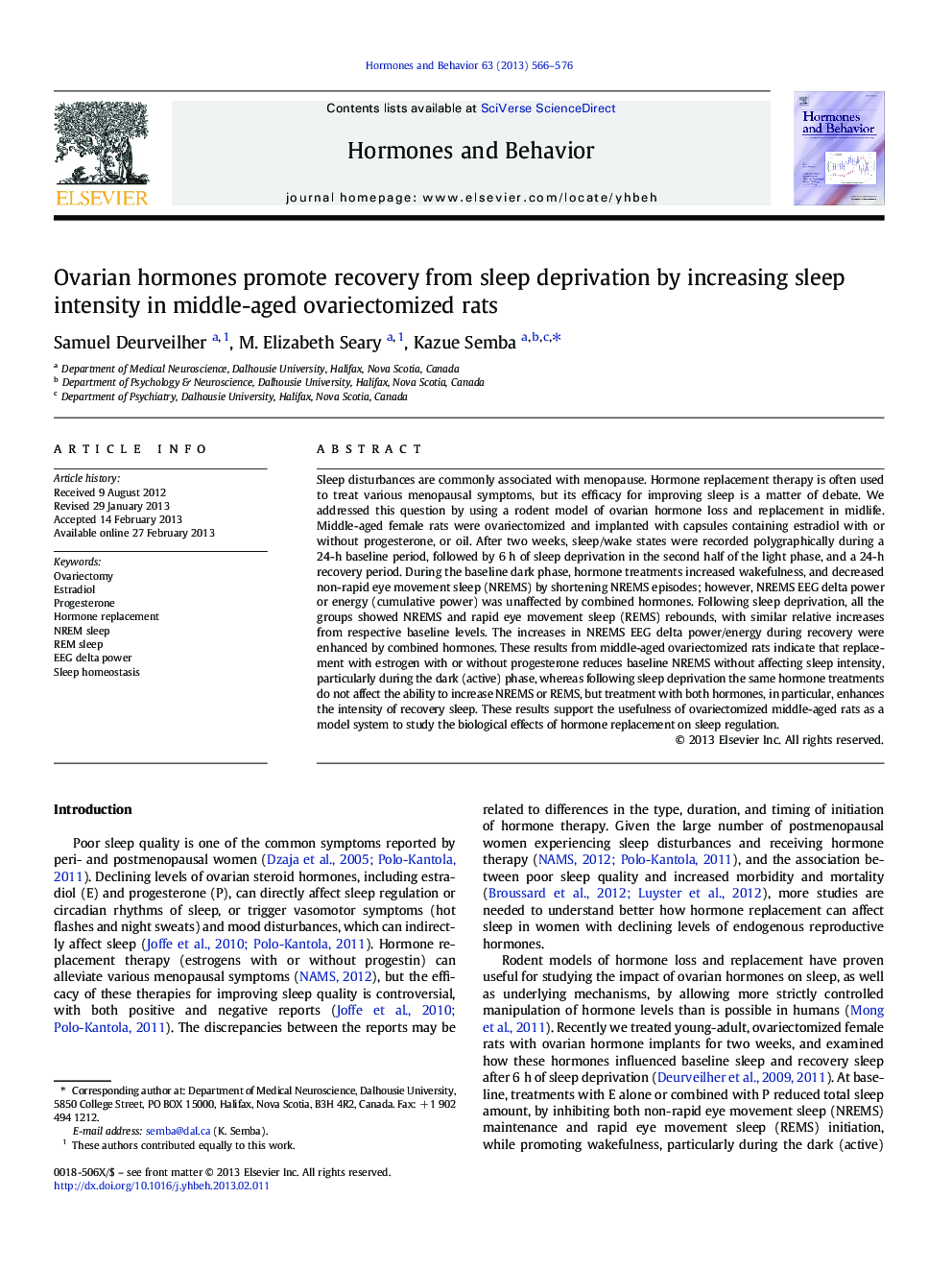| Article ID | Journal | Published Year | Pages | File Type |
|---|---|---|---|---|
| 322766 | Hormones and Behavior | 2013 | 11 Pages |
•Middle-aged, ovariectomized rats received estradiol with or without progesterone.•At baseline, the hormone treatments increased wake and reduced NREMS.•However, overall sleep intensity was preserved by co-administration of hormones.•After sleep deprivation, NREMS/REMS rebounds were unaffected by hormone treatments.•Yet, co-administered hormones increased sleep intensity after sleep deprivation.
Sleep disturbances are commonly associated with menopause. Hormone replacement therapy is often used to treat various menopausal symptoms, but its efficacy for improving sleep is a matter of debate. We addressed this question by using a rodent model of ovarian hormone loss and replacement in midlife. Middle-aged female rats were ovariectomized and implanted with capsules containing estradiol with or without progesterone, or oil. After two weeks, sleep/wake states were recorded polygraphically during a 24-h baseline period, followed by 6 h of sleep deprivation in the second half of the light phase, and a 24-h recovery period. During the baseline dark phase, hormone treatments increased wakefulness, and decreased non-rapid eye movement sleep (NREMS) by shortening NREMS episodes; however, NREMS EEG delta power or energy (cumulative power) was unaffected by combined hormones. Following sleep deprivation, all the groups showed NREMS and rapid eye movement sleep (REMS) rebounds, with similar relative increases from respective baseline levels. The increases in NREMS EEG delta power/energy during recovery were enhanced by combined hormones. These results from middle-aged ovariectomized rats indicate that replacement with estrogen with or without progesterone reduces baseline NREMS without affecting sleep intensity, particularly during the dark (active) phase, whereas following sleep deprivation the same hormone treatments do not affect the ability to increase NREMS or REMS, but treatment with both hormones, in particular, enhances the intensity of recovery sleep. These results support the usefulness of ovariectomized middle-aged rats as a model system to study the biological effects of hormone replacement on sleep regulation.
